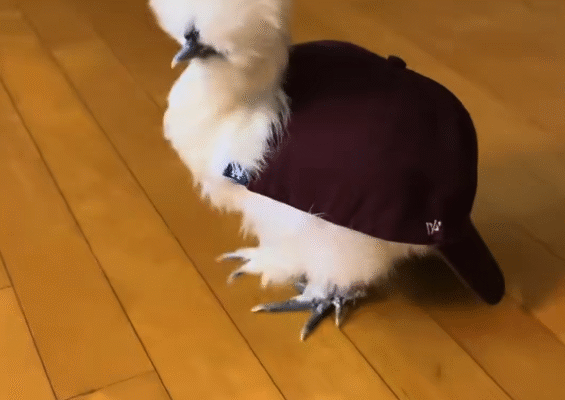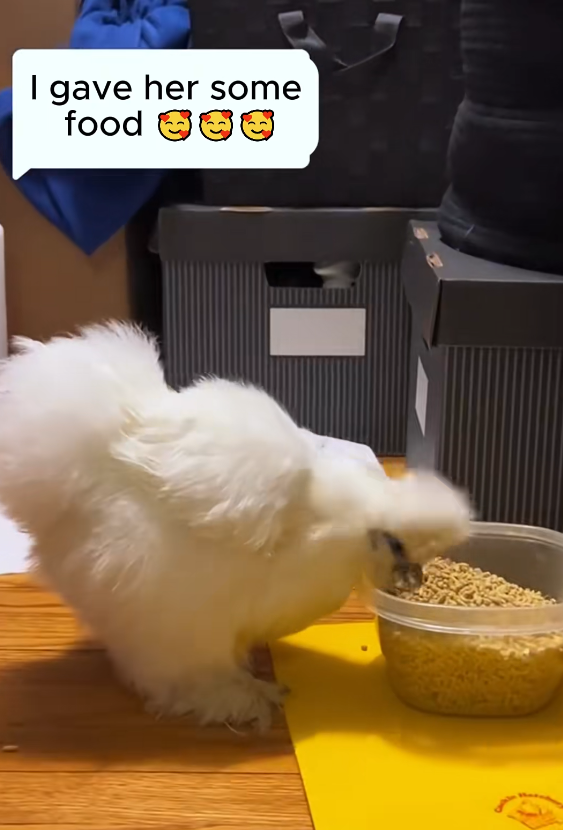
It was a quiet afternoon, the sun hanging lazily in the sky, casting long shadows on the dusty road that led to the outskirts of my village. I was on my way home from the market, carrying a small bag of vegetables and a loaf of bread. The road was mostly empty, except for the occasional motorbike zooming past or the distant bark of a dog. That’s when I saw it—a scraggly little chicken wobbling on the side of the road, pecking weakly at a piece of dry leaf.
The sight stopped me in my tracks.
This chicken looked nothing like the healthy, proud ones I often saw roaming the village yards. It was small, painfully thin, with feathers missing in patches and a limp in its step. Its eyes were dull, tired, and its head bobbed low, as if the weight of the world had settled on its frail body. I glanced around. No coop, no owner, no other chickens. Just this poor, lonely bird wandering as if searching for something—or someone.
I knelt down slowly, not wanting to scare it. “Hey there, little buddy,” I whispered softly. The chicken froze for a moment, then gave a weak cluck and took a hesitant step toward me. It didn’t run away. That was my first sign something was seriously wrong—chickens are usually quick to flee strangers. This one seemed too exhausted to care.
I reached into my bag and tore off a small piece of bread. Holding it out, I watched as the chicken pecked at it, cautiously at first, then more eagerly. I could tell it hadn’t eaten properly in days.
My heart ached.
“Where did you come from?” I murmured. “And why are you all alone?”
There was no answer, of course—just the soft rustling of wind and the chicken’s quiet clucks. But in that moment, I felt a connection. It wasn’t just a chicken anymore—it was a living creature who had been through hardship, possibly abandoned or lost, surviving against the odds.
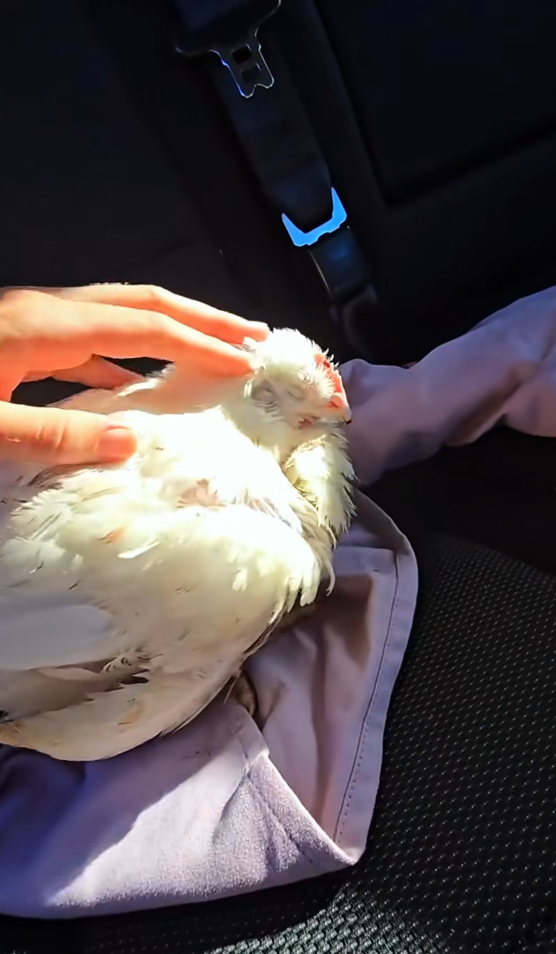
I knew I couldn’t just walk away.
I took off my light scarf and gently wrapped it around the chicken’s body. It struggled at first, then calmed as I cradled it in my arms. Its bony frame pressed against me, and I felt the rapid beat of its tiny heart. This chicken needed help, and I was the only one around to give it.
When I got home, I prepared a small box with some straw and an old towel, making a cozy bed for my new feathered friend. I placed the chicken inside, then poured some clean water into a bowl and added a few crumbs and rice to a plate. The chicken drank quickly but pecked at the food slowly, its energy clearly depleted.
Over the next few days, I became something of a chicken nurse.
I cleaned its wounds—small scratches and pecks that had probably come from other animals. I applied coconut oil to the bald spots on its feathers. I researched chicken care online and spoke to my neighbors who kept poultry. Some laughed when I told them I’d rescued a street chicken. Others offered old feed or advice.
But the chicken—who I eventually named “Lucky”—started to improve.
She began to cluck a little louder. Her feathers started growing back. She followed me around the yard and even began scratching the soil, looking for bugs like a proper chicken should. What amazed me the most was how intelligent and responsive she was. When I called, “Lucky!” she would perk up and trot over, her little legs moving faster every day.
I built her a small coop from wood scraps and wire. It wasn’t fancy, but it was safe and warm. At night, Lucky would curl up in one corner and close her eyes as if she’d finally found peace.
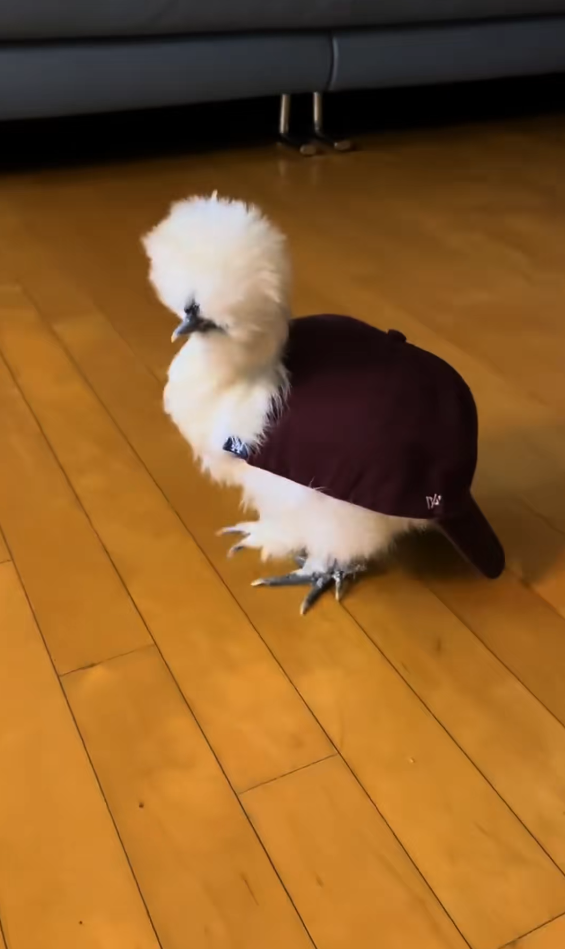
People in the village started noticing.
“Is that the same chicken you found on the road?” one lady asked.
“Yes,” I said, beaming with pride. “She’s come a long way.”
“You’re kind,” she said. “Not everyone would do that.”
But I didn’t feel like I’d done anything extraordinary. To me, compassion is a responsibility we all carry—for humans and animals alike. Lucky was just a small reminder of how much good we can do with just a little effort and love.
Weeks turned into months, and Lucky became part of my daily routine. She waited by the door in the mornings, followed me as I watered the plants, and even perched beside me when I read books in the afternoon. She never laid many eggs—just one every couple of weeks—but each one felt like a miracle. A symbol of survival.
Then, one rainy night, I heard a commotion outside. I ran to the window and saw a shadow lurking near Lucky’s coop. A stray dog! I grabbed an umbrella and rushed out, yelling and waving. The dog fled, and Lucky clucked in panic. I checked her—she was safe, though scared. I held her for a long time that night, whispering reassurances.
That moment made me realize something important: Lucky wasn’t just a rescued chicken anymore. She was family.
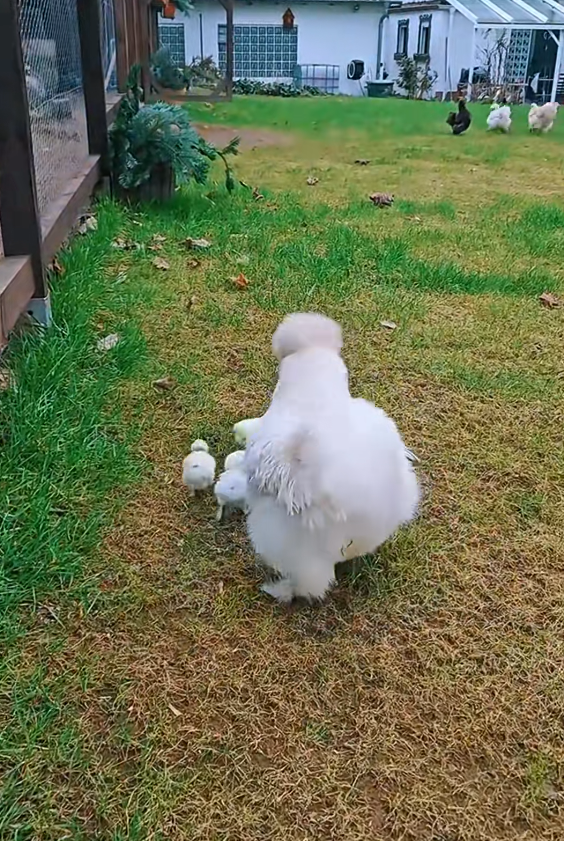
Her presence brought warmth and routine to my life. She reminded me to slow down, to be gentle, to care. In a world that often feels overwhelming, she was a small, steady light.
One morning, a little boy from the neighborhood came to visit. He’d heard about Lucky and wanted to see her. As he watched her scratch the ground and fluff her feathers, he asked, “Do chickens remember things?”
I smiled. “I think so. Especially the good things.”
He thought for a moment and said, “Then Lucky must really love you.”
That comment stayed with me. Maybe chickens don’t say thank you in words. But in their own quiet way, with trust and loyalty, they do.
Today, Lucky is healthy, happy, and still by my side. Her feathers are full and shiny, her eyes bright. She still limps a little, a small reminder of the hard road she once walked. But she’s no longer the poor chicken I met that day.
She’s Lucky. And I’m lucky too—for having met her.
Sometimes, all it takes is a moment of kindness on a quiet road to change two lives forever. 🐔❤️
